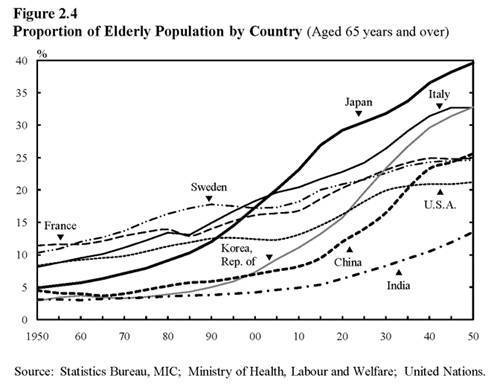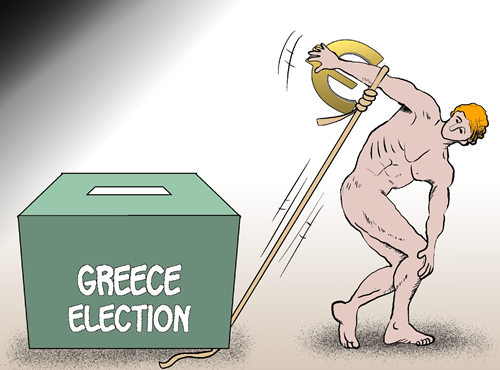The consequences of demographic imbalances
- By Tylor Claggett
 0 Comment(s)
0 Comment(s) Print
Print E-mail China.org.cn, June 21, 2012
E-mail China.org.cn, June 21, 2012
|
|
|
Making a drachma out of a crisis? [By Jiao Haiyang/China.org.cn] |
The Greek election of June 17 put many aspects of the world's economic and political condition in 2012 in the spotlight. The New Democracy party, Greece's conservative party, who favored abiding by the strict conditions for receiving IMF and EU bailout funds, won about 30 percent of the vote, while the ultra left, anti-austerity, SYRIZA party won 27 percent. At the time of this writing it is unclear how the winners, if you can call 30 percent of the vote a win, will be able to form any type of viable coalition. Aside from the immediate repercussions within Greece and Europe, we can look at these recent events and see a longer-term microcosm of what many developed and developing countries now face.
It is no secret that part of the toxic environment around the world is the never-before seen phenomena of dramatically aging populations. Please see Figure 2.4 below.

In many parts of the world we see significantly higher unemployment rates among younger people than within the overall population. In addition, the young resent the proposed higher taxes and the lower standards of living necessary to support the growing older generations in the style they have been promised. In the U.S., many older employees that have jobs are deciding to continue to work because of the uncertainties associated with retirement. Older workers working longer may be part of the reason younger people are finding fewer employment opportunities. In aggregate, it may be better for society if older workers step down sooner, but that may not be in the best interest of those individuals.
Older Americans who lost their jobs during 2008-09 recession, whose skill sets may now be obsolete, resent their slim prospects of reentering work force. These individuals will have to make do with what they consider much less than they are entitled to for the rest of their lives. Their bitterness translates to significant political dissatisfaction.
Never before have policymakers had to deal with so many middle-aged and elderly that expect generous social benefits balanced against a relatively smaller younger generation that is having a difficult time getting established with steady jobs, forming their own families and, in general, being able to move forward with their lives. In many cases, it is beginning to look more and more like generational warfare is a real possibility.
In Greece, exit polls indicated those that voted in favor of staying within the EU and the Euro Zone feared the unknown and the very real possibility of a political meltdown within Greece. They feel they had something to protect. Those voting against austerity indicated they were rejecting the severe terms of the IMF and EU agreement. They feel they have nothing to lose and could possibly strike a better deal for themselves once freed from the terms of the bailout agreement.
With almost an even split between the two viewpoints, is it possible for any leader or policymaker to accomplish anything? I am fearful similar stories will be played out time and time again during the next few years as this problem becomes a worldwide phenomenon. What are the implications for democratic governments? Societies with aging populations are simply unsustainable. I hope I am wrong, but it will take several generations for the demographics of many countries to be corrected. In the meantime, I am afraid societal upheaval will become commonplace in many parts of the world.
The author is a columnist with China.org.cn. For more information please visit: http://www.china.org.cn/opinion/tylorclaggett.htm
Opinion articles reflect the views of their authors, not necessarily those of China.org.cn.








Go to Forum >>0 Comment(s)